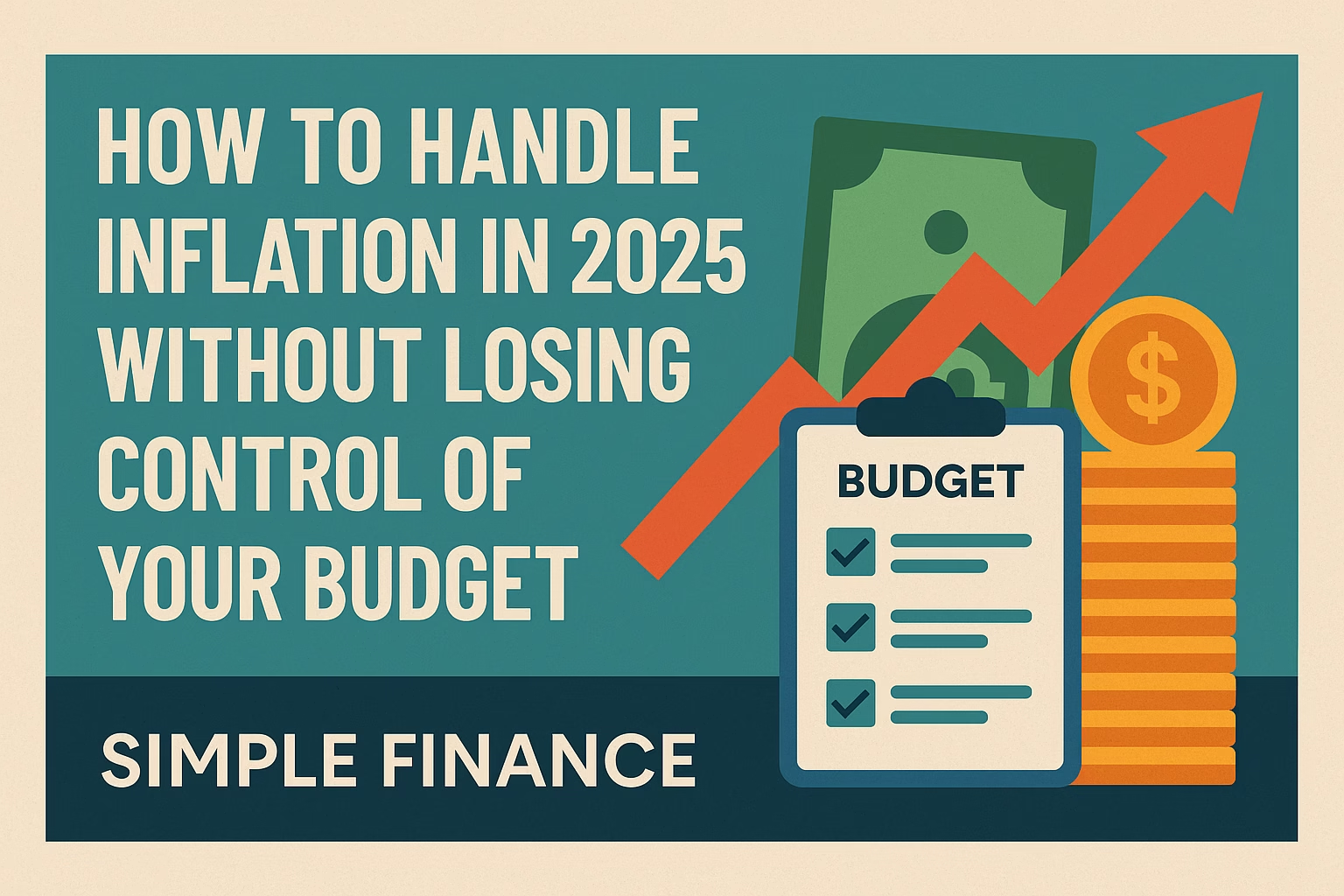Inflation in 2025 is still making life more expensive for all of us. Groceries cost more. Gas prices are creeping up again. Even things like childcare, insurance, and utilities are eating up more of our paychecks.
If you’re someone who’s working toward financial freedom, this can feel like a setback—but it doesn’t have to be.
In this article, we’ll break down how to stay on budget during inflation by using the underconsumption core approach, trimming the fat, and sticking to a plan built on simple finance.
What Is Inflation Doing in 2025?
Inflation means prices are going up, and in 2025, they still haven’t fully settled. Even though the Federal Reserve slowed down interest rate hikes, prices for everyday items haven’t dropped much.
According to the latest Bureau of Labor Statistics CPI report, year-over-year inflation is still over 3%, which is higher than the Fed’s 2% target.
That means your money doesn’t go as far. And if your income hasn’t kept up with rising prices, you’re effectively losing money every month.
Why Inflation Hurts Your Financial Freedom Goals
If you’re on the path to financial independence, you’re probably trying to:
- Pay off debt
- Save and invest consistently
- Live below your means
But inflation makes all of those harder. Food, gas, and housing can eat up more of your income, leaving less to save or invest.
That’s where the underconsumption core mindset comes in. It’s a way of life that says: Spend less, waste less, live intentionally.
6 Ways to Beat Inflation Without Busting Your Budget
1. Revisit Your Spending Plan
Now is a great time to review your monthly expenses. Print out your last 60 days of transactions. Look for things like:
- Subscriptions you forgot about
- Impulse food delivery orders
- Monthly charges that aren’t essential
Every dollar you free up is a dollar you can keep or redirect to your emergency fund.
Tool: Try Rocket Money to automatically scan and cancel unwanted subscriptions.
2. Use the Underconsumption Core Method
Living with an underconsumption mindset means asking one question before every purchase:
Do I really need this right now?
It’s not about deprivation. It’s about choosing freedom over stuff. If you can live on less today, you’ll have more flexibility tomorrow.
Examples:
- Brew coffee at home
- Meal prep with pantry staples
- Cancel streaming services
- Use the library for books, movies—even tools
3. Buy in Bulk and Shop Smart
Inflation hits hardest when you’re buying small quantities of high-priced goods. Instead, lean into smart bulk shopping:
- Buy store-brand items in bulk
- Use apps like Too Good To Go for surplus food deals
- Split wholesale memberships with a friend
4. Pause Big Purchases
Inflation is a great time to delay non-essential purchases. If your car still works, maybe you don’t need a new one. If your phone’s a little slow, keep it another year.
You can always upgrade later—without wrecking your budget now.
5. Increase Income (Even a Little Helps)
Cutting costs is half the battle. The other half is boosting income.
Ideas include:
- Freelancing on Fiverr or Upwork
- Selling unused items on Facebook Marketplace
- Small side hustles like tutoring or dog walking
Even $200/month can go a long way toward your financial goals.
6. Stay Invested (If You Can)
If you’re already investing for the long term (like in a Roth IRA or 401(k)), don’t panic and stop.
Keep dollar-cost averaging—even if it’s less than usual. Historically, investing through downturns leads to long-term gains.
Final Thoughts
You can’t control inflation—but you can control how you respond. By cutting back, living with an underconsumption core, and sticking to a simple finance plan, you’ll stay on track toward financial freedom.
The journey isn’t always easy, but it’s worth it. The choices you make today will help you live free tomorrow.
If you love finding ways to save money and want more tips on achieving financial independence, join our FREE mailing list! We share simple, actionable advice to help you live debt-free, save smarter, and enjoy life without financial stress. Sign up today and take the next step toward a better financial future!
